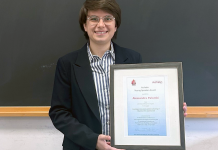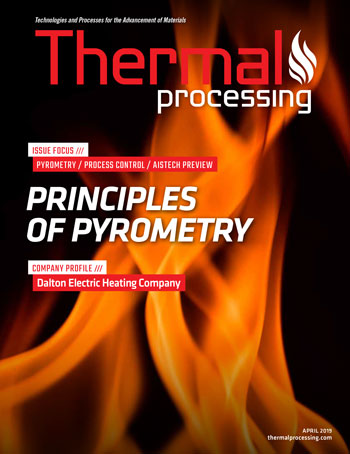
What is your role at Buehler?
I am the product manager for our hardness testing equipment within Buehler.
Buehler is a global supplier of apparatus for microstructural analysis. Our customers are manufacturing components, for a variety of industries, with a focus on automotive and aerospace. We supply our customers with lab equipment used for sample preparation to analyze the components, the materials, and also to do quantifiable testing regarding the hardness.
Why is hardening important in the heat-treat industry?
Hardening processes on steels and alloys are mainly used for high-friction applications, like gear wheels, engine components, and steering rods. Hardening makes a material suitable for its application. There is a vast amount of materials available that needs to undergo a hardening or heat-treatment process to make the material work for its desired application. To check that a material or the final processed component is suitable, hardness checks need to be performed. Buehler is a premium supplier of hardness testers to support our customers.
What kind of hardness-testing equipment does Buehler offer the heat-treat industry?
We have a portfolio of different kinds of hardness testers, and we have a really long history of manufacturing Wilson hardness machines. We have launched our new Universal Hardness tester, the UH4000, which fits into production environments where hardness tests need to be performed fast and accurately.
What brought about the development of an updated universal hardness tester?
Throughout our complete unit portfolio, we really want to develop products that are based on customer needs, so we reached out to customers. We wanted to understand the customer and the main points they have. We started thinking about how we can improve and simplify this with our new product developments, in this case an improved Universal Hardness machine.
The machine itself has been designed for production floors where you have a multi-shift environment and have big parts and rough conditions — dirty environments. But it can also be used in a university where you have one machine, because in universities you have varied materials to test where you need to have different scales. It depends really on the application, and you can configure the machine as you wish.
It’s ultimately a universal machine but was designed for heavy usage. It has a large steel casting frame. The measurement system of the machine is projected underneath with aluminum casting, so it’s a really rigid machine.
What is significant about the Wilson UH4000 series?
The overall concept of this kind of machine is that it’s manufactured robustly. When you think about a machine that stands next to an induction heat-treatment oven, workers are often working in a three-shift environment. They have components to test, which can be very large. Customers need a machine large enough to hold these parts. That’s why the machine itself needs to be very robust. We now have a product that addresses this kind of need from our customers.
The innovative hardness tester also features very fast testing cycles and a newly developed turret to hold several indenters and objectives. The operator can test to a variety of methods without the need for manual indenter/objective changes. The frame is made from a solid casting, along with a sturdy turret cover to protect the turret assembly and the hardness measurement system against outer influences and collisions. The large 300mm (11.8 in.) x 400mm (15.7 in.) T-slot stage and the weight capacity enable testing of large heavy parts.
We have also added some really nice features like an innovative clamping device that clamps the parts prior to testing and during testing, so the part itself is secured and reduces error in testing or potential damage to the indenter.
Overall, the complete machine is controlled by our DiaMet™ software, which has been on the market for a couple of years. It’s known for its easy-to-use interface and intuitiveness. When you think about having this machine sitting in a three-shift environment, you want software that is intuitive and does not require extensive training.
What’s been the industry reaction to the series so far? And has that versatility been a major attraction?
Everybody’s excited about it, especially our global sales teams. They have had a lot of interest from our customers because they see it as the best solution in the market.
The first couple of machines were sold within a short amount of time, and requests are increasing from week to week, confirming Buehler is again capturing the need of our global customer in quality control environments. It’s a really great start for us.
MORE INFO www.buehler.com




























